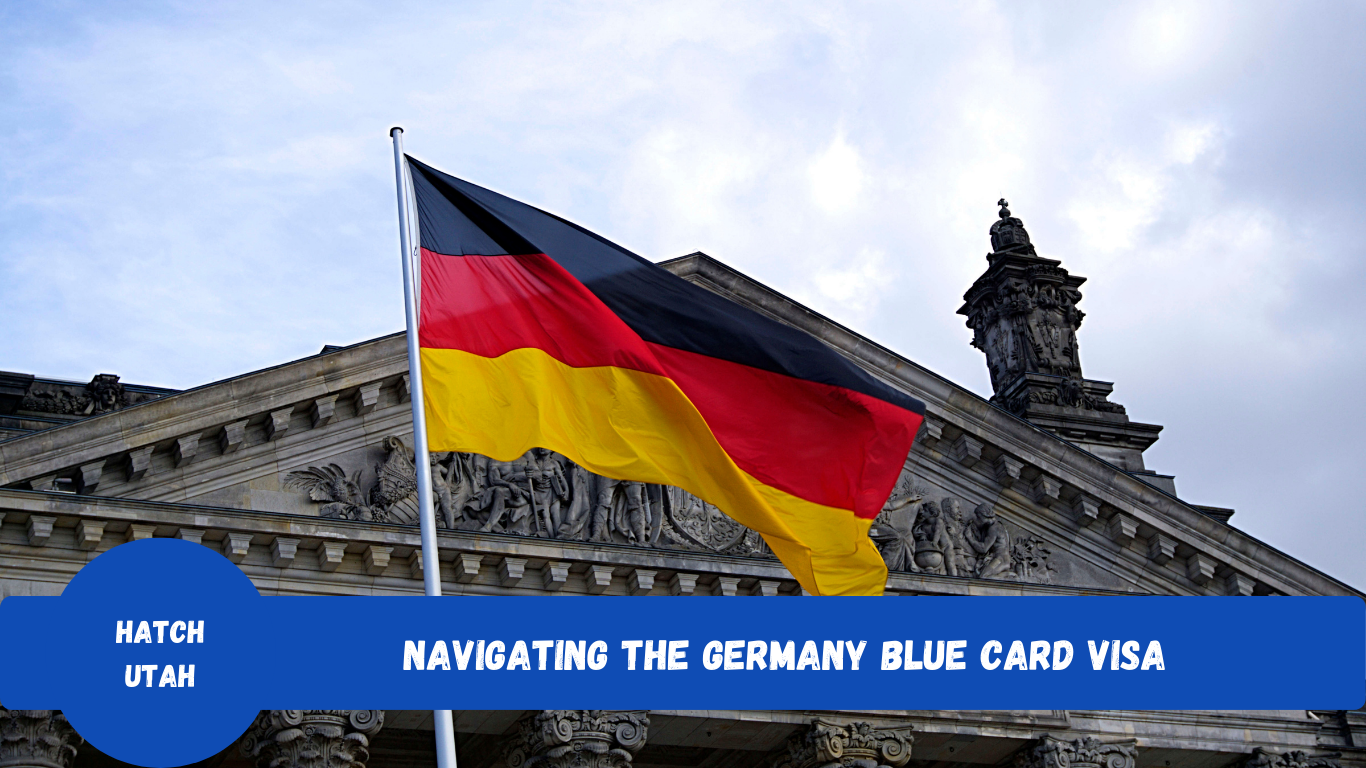Germany’s robust economy and rich cultural landscape make it a prime destination for skilled professionals from around the world. For non-EU nationals looking to leverage their expertise in a vibrant European country, the Blue Card Visa serves as a golden ticket. This guide delves into the intricate details of the Germany Blue Card Visa, highlighting the eligibility requirements, application procedures, and the myriad of benefits it offers.
What Exactly is the Germany Blue Card?
Introduced in 2012, the Germany Blue Card is a specific type of residence permit intended for highly skilled non-EU nationals. It is part of a broader European Union initiative designed to attract talented professionals to the region. The Blue Card not only facilitates easier access to the German job market but also serves as a stepping stone towards permanent residency within the EU.
Who Qualifies for the Blue Card?
The eligibility criteria for the Blue Card are precise, aimed at integrating high-level expertise into the German workforce:
Educational Qualifications: Applicants must hold a university degree or an equivalent qualification recognized in Germany. The degree should be relevant to the applicant’s field of employment.
Job Offer: Candidates need a valid job offer from a German employer in a highly skilled position that correlates with their educational background.
Salary Threshold: The position should fulfill a minimum salary requirement, which stands at approximately €56,400 annually. For shortage occupations like engineering, IT, and medical fields, this threshold lowers to around €43,992.
Health Insurance: Applicants must provide proof of adequate health insurance coverage, compliant with German legal standards.
How Do You Apply for a Blue Card?
The application process for a Germany Blue Card is methodical and requires careful preparation:
Documentation: Gather all necessary documents, including your passport, degree certificates, job offer details, proof of salary, and health insurance.
Application Submission: Apply through the nearest German embassy or consulate. In certain cases, applications can be made within Germany if the applicant already holds another type of visa.
Interview Process: Some applicants may need to attend an interview or submit additional documents to further support their application.
Receiving Your Card: Once approved, the Blue Card is issued, allowing the holder to legally live and work in Germany.
What Are the Benefits of Holding a Blue Card?
The Blue Card offers several advantages that make it an attractive option for skilled workers:
Work Flexibility: Holders can change jobs within their field without reapplying for a new visa, as long as the new role meets Blue Card conditions.
Pathway to Permanent Residency: After 33 months (or 21 months with German language proficiency), Blue Card holders can apply for permanent residency.
Family Reunification: Spouses and children can relocate to Germany, facilitating family unity.
EU Travel: The card simplifies travel within the Schengen Area, allowing for easier movement across EU countries for short stays.
What Challenges Might You Face?
While the Blue Card offers numerous opportunities, applicants may encounter certain challenges:
Navigating Bureaucracy: The German administrative system can be complex and time-consuming, requiring detailed paperwork and patience during the application process.
Cultural and Language Barriers: Adapting to a new culture and learning the German language can be daunting at first but is crucial for integration and long-term success in the country.
Why Choose Germany?
Living in Germany comes with significant perks. The country is known for its high standard of living, comprehensive social security, and a thriving cultural scene. Cities like Berlin, Munich, and Frankfurt are hubs of activity with excellent public services, including transportation, healthcare, and education. Additionally, Germany’s emphasis on innovation and research provides a stimulating environment for professionals to advance their careers.
Conclusion: Is the Blue Card Worth It?
For skilled non-EU nationals, the Germany Blue Card is more than just a visa—it’s a gateway to vast opportunities. It offers a blend of professional development and personal growth within one of Europe’s most stable and dynamic economies. By fulfilling the eligibility requirements and navigating the application process, the Blue Card can be your key to a promising future in Germany, making it an invaluable option for those looking to enhance their careers and life prospects in Europe.









